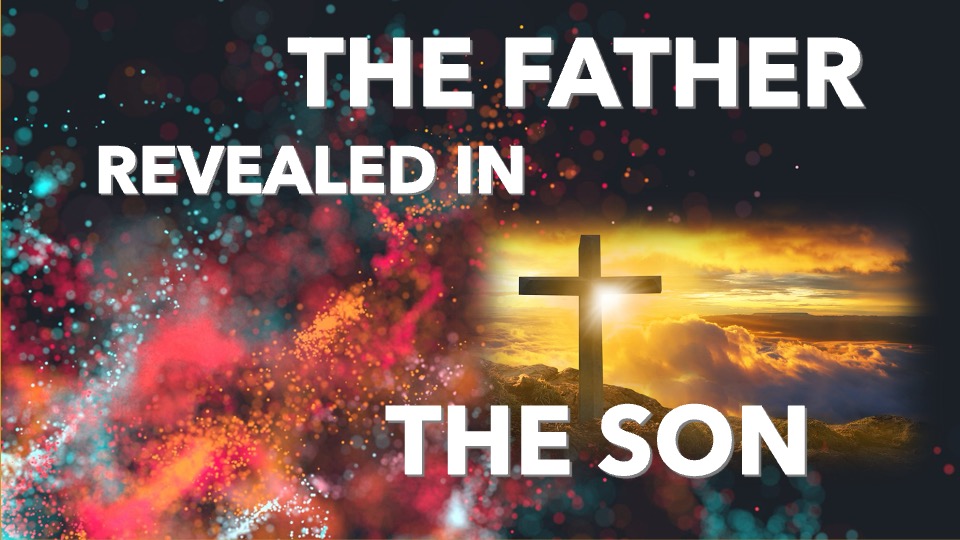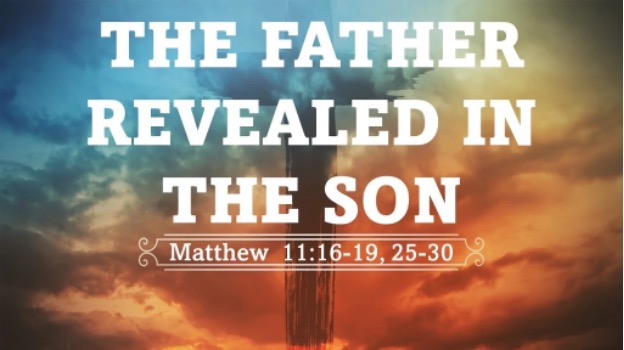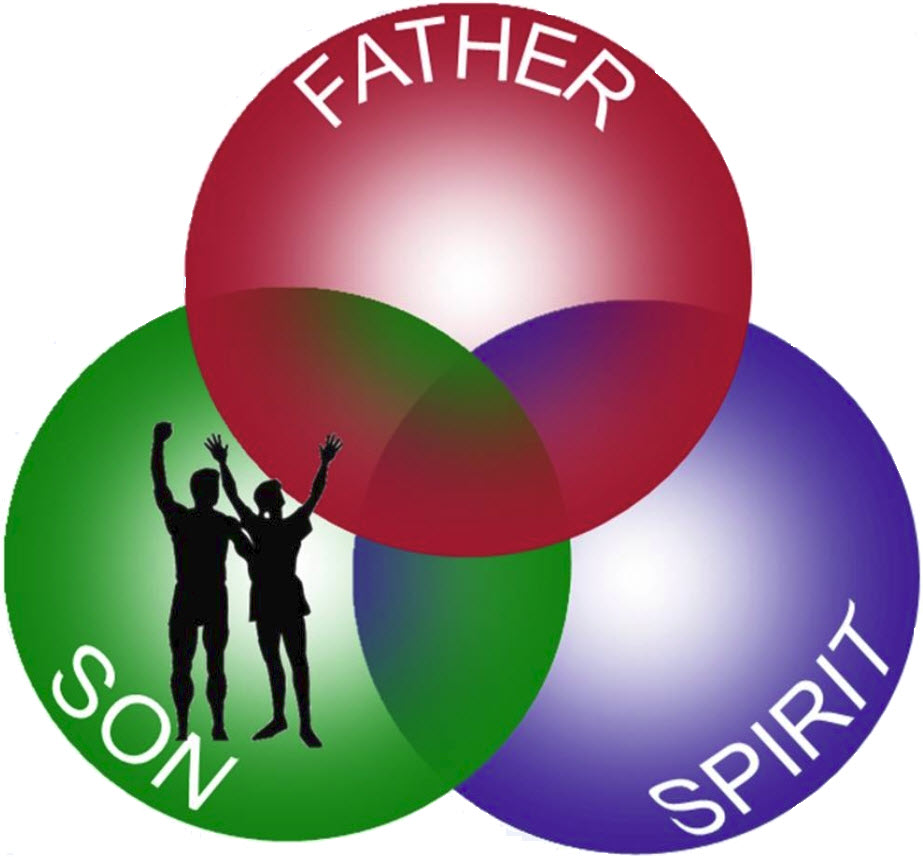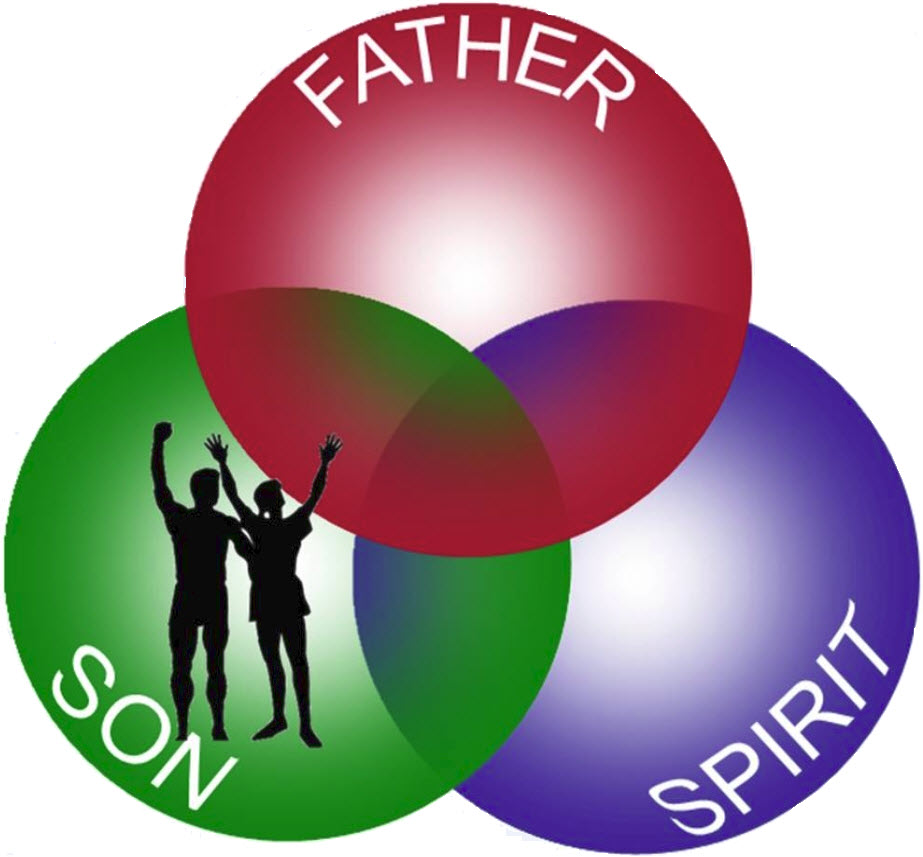Archive for the ‘Faith’ Tag
“A Divine Calling!”
Word of Life Devotional by Sherwin Scott
Therefore, holy brothers [and sisters], you who share in a heavenly calling, consider Jesus, the apostle and high priest of our confession…
Hebrews 3:1 (ESV)
Many people consider themselves to be called to a specific profession or service. They believe that they have been called to be doctors, lawyers, and teachers, or to serve in the armed forces or the local or national government of their country. Maybe they feel they are called to be the leader of a nation as president or prime minister.
Believers in Jesus Christ have received a specific and definite calling into his fellowship. The Apostle Paul explains in 1 Corinthians 1:9: ‘God is faithful, by whom you were called into the fellowship of his Son, Jesus Christ our Lord.’ What exactly is ’the fellowship of his Son’? It is the holy, loving relationship of God the Father, Jesus the beloved Son and the Holy Spirit – a divine relationship that has existed from eternity and will continue forever!
Believers are blessed, privileged, and honored to be called to participate or share in this wonderful relationship. It doesn’t get any better – it is finding the pearl of great value (Matthew 13:45-46), the ultimate calling! And an amazing truth about this special calling is that it cannot be revoked as explained in Romans 11:29: ‘For the gifts and the calling of God are irrevocable.’
Relationships are very important to God, for God is in relationship: Father, Son, and Holy Spirit, a communion of love. And he wants us as his children to participate in the divine relationship, which will continue forever. With this divine calling there is no going back, for God takes no pleasure in anyone who draws back (Hebrews 10:36-38). There is only one way – marching forward into the fullness of God’s glorious kingdom.
Prayer
Heavenly Father, thank you for the invitation to participate in your beautiful relationship. Please help me to respond in a manner that is pleasing to you. In Jesus’s name I pray, Amen.
Study by Sherwin Scott
Photo Compliments: WorldChallenge.org
“Who is The Father Revealed in Jesus?” Pt. 2
Part 2A:
Part 2B
Full Message:
Scripture:
2 Cor 13: 14, Matthew 23: 8-11, John 17
Summary and Goal:
This sermon discusses the importance of understanding the relationship between God the Father, Jesus Christ, and the Holy Spirit. It emphasizes the deep love and joy that comes from being united with the Father through Jesus and the Holy Spirit.
“What I mean is this. An ordinary simple Christian kneels down to say his prayers. He is trying to get into touch with God. But if he is a Christian he knows that what is prompting to pray is also God: God, so to speak, inside him. But he also knows that all his real knowledge of God comes through Christ, the Man who was God—that Christ is standing beside him, helping him to pray, praying for him. You see what is happening. God (THE FATHER) is the thing (ONE) to which he is praying—the goal he is trying to reach. God is also the thing (ONE) inside him which is pushing him on—the motive power. God is also the road or bridge along which he is being pushed to that goal. So that the whole threefold life of the three-personal Being is actually going on in that ordinary little bedroom where an ordinary man is saying his prayers. The man is being caught up into the higher kind of life—what I called Zoe or spiritual life: he is being pulled into God, by God, while still remaining himself.” (P.163) – Mere Christianity by C.S. Lewis
Highlights:
👨👦👦 The Father, Son, and Holy Spirit are distinct persons in the Godhead.
👻 The Holy Spirit is not a commodity, but a person who hears, speaks, sees, inspires, and moves.
🎁 Everything we receive and do comes from the Father through Jesus and in the Holy Spirit.
😇 Joyous days in the Father surpass mere happiness and can be experienced even in affliction and distress.
❤️ The love of the Father is deep and unbreakable, even in the face of trials and persecution.
✝️ The Father’s love was demonstrated through Jesus’ sacrifice on the cross, which reconciled and saved humanity.
🤝 The relationship with the Father is shared through the participation in the Holy Spirit’s fellowship.
“Who Is The Father Revealed In Jesus?” Pt. 1
Pt 1A:
Pt 1B:
Full Message:
Scripture: Isaiah 40: 18-31, Isaiah 46: 3-13, Hebrews 1: 1-3, 1John5, Mark 12, John 17
Summary and Goal:
This sermon is about the importance of knowing and understanding the God and Father of our Lord Jesus Christ. The speaker emphasizes the supreme advantage and relevance of having a relationship with the Father-Son-Holy-Spirit-God as Revealed in Jesus Christ the God/Man.
Highlights:
🙏 Praying to the Father before the message
🌟 The twin doctrines of faith: Who is the Father? What is He doing?
👨👧👦 Father’s Day celebration and addressing everyone
🏛️ The foundation of Jesus Christ and the importance of building on it
📖 Scripture references and teachings on the Father
🌍 The Importance of God the Father for every family
💞 Implications of understanding and relating to God the Father
💡 Knowing the Father gives supreme advantage and relevance in life.
Photo compliments: smoodock45.wordpress
Who Is The Relational God Revealed In Jesus?, Pt. 2
Part 2A
Part 2B
Scripture: Acts 2:33, 2 Cor 13:14
Summary and Goal:
This Sunday, following Trinity Sunday, we continue proclaiming the relational God-Father-Son-Holy-Spirit Revealed in Jesus. This message is meant to help believers remember that the Father-Son-Holy-Spirit-God is not just an add-on doctrine of Christian faith, but that this God IS the Gospel! God the Trinity is “the root and nerve center” of all Christian belief. There could be no beliefs or doctrines apart from the Truth of Who God has revealed Himself to be in Jesus Christ. Indeed, there is no Christian faith apart from this relational God Who, in Love, sent Jesus Christ into our humanity to reveal Himself and share His Love and Life with us in the Holy Spirit. If you don’t get this basic understanding of the Gospel, you don’t get or understand Christianity. God’s primary revelation to us is the revelation of Himself! The scriptures are primarily about Him! We can only understand ourselves, and the scriptures in the Light of Who He is, or we cannot and do not understand either! Check it out!
Christ Connection:
Jesus alone reveals this God and, by becoming human, has given us human beings real knowledge of, and access to, God, through the Holy Spirit!
Photos compliments: trinityandhumanity.com (John Stonecypher)
Who Is The Relational God Revealed In Jesus?
Part 1A
Part 1B
Scripture: Acts 2:33, 2 Cor 13:14
Summary and Goal:
On this Trinity Sunday, we proclaim the relational God-Father-Son-Holy-Spirit Revealed in Jesus. This is an attempt to clarify further why this is so important to grasp, and what it means for our Christian faith. Indeed, there is no Christian faith apart from this relational God Who, in Love, sent Jesus Christ into our humanity to reveal Himself and share His Love and Life with us.
Christ Connection:
Jesus alone reveals this God and, by becoming human, has given us human beings real knowledge of, and access to, God!
Photos compliments: trinityandhumanity.com (John Stonecypher)
JESUS: The Most Important PERSON and TASK For Everyone! Part 5 (Jesus’ Crucifixion / The Biblical Worldview)

Part 5A:
Part 5B:
Full Message:
Bible Verses: Mark 15 Psalm 22 Isaiah 53
Introduction:
On this Transfiguration Sunday we are reminded that the Whole God Father Son and Holy Spirit loves you/us so much that he has suffered for you/us in the Life of the Son made flesh! The Father-Son-Holy-Spirit-God loves you so much that together, in Their utter Oneness, Each distinct Person somehow shares in the humanity of the Son of God in Jesus (only the Son became human!), having suffered for you and having resisted all evil and every temptation on your behalf and in your place! In Jesus, Who sustains you from within his own human nature, you have victory over all evil principalities and powers. Even your present sufferings cannot and will not prevent you from receiving your victory in Christ! Christ’s victory is so full of the glory and love of God that you will consider your present sufferings to be light in comparison to the glory you will receive! Whereas sin and evil have no future, you have an immortal and eternal life to look forward to with Jesus in His eternal relationship with the Father Son and Holy Spirit. Jesus Transfiguration is a picture of our transformation in Him!
Theological Theme:
On one hand is the non-relational, unfeeling god of our sinful imaginations; the God more interested in law and punishment and sin than he is interested in us. On the other hand is the One and only True God – Father-Son-Holy-Spirit – Merciful and compassionate! The Relational, loving God revealed in the Person of Jesus! The triune God WITH US & FOR US despite our sin! The God Who includes us all in His Life & Love, permanently, in Jesus – Who atoned for the sins of the world!
Christ Connection:
Do you have this great vision of the Gospel before you????? You are being made fit for eternal life, and by God-Father-Son-Holy-Spirit you WILL be fit with the spiritual muscle of Jesus Who has transformed our human nature in His own, turning it back fully to the Father. Our Father does nothing halfway! In Christ and by the Spirit you are becoming who and what you really are and you will be that (or you won’t be at all!) The death of Jesus means the death of death, and a nature turned from God and corrupted now turned back to God in a glorified and permanent way.
Missional Application:
As believers in union with Jesus Christ, and in the light of Who He is and what He has done, we proclaim and witness to others not yet in spiritual union with Jesus that, as George Hunsinger has well-stated “There’s always more grace in God, than there is sin in us!”, therefore, repent and believe, receive the Good News and enter a trust relationship with the Father, through the Son and in the Holy Spirit!
We are All One In Christ Jesus!
Part A:
Part B:
Full Message:
Bible Verse: Galatians 3
Introduction:
Jesus is the Anointed One, referring to the fact that He is the One Man Who has the Holy Spirit of God poured out on Him without measure, and is the One Who pours out the Holy Spirit on all flesh in Himself and upon all people outside Himself (possessing and assuming the human nature of all persons) that we might share in His union and communion with His Father!
Theological Theme:
The Father-Son-and-Holy-Spirit-God is the ground of ALL PEOPLE AND THINGS and the renewal of ALL THINGS IN JESUS CHRIST! As the Cosmic Christ He is fulfilling his promise to draw EVERYONE to himself through In the Holy Spirit, to the glory of the Father!
Christ Connection:
Jesus Christ is not only the anointed ONE, HE is also the ONE who pours out the SAME Holy Spirit on us, in flesh, as the Representative of ALL PEOPLE, and as the Substitute for ALL PEOPLE so that we can discover and become ourselves by the Holy Spirit’s empowerment. Jesus sends the Person of the Holy Spirit Who mediates Jesus to us so we can TRUST and relate with him, sharing in his union and communion with the Father;
Missional Application:
Because Jesus is alive as the Resurrection and continuing in his ongoing ministry to the Father, the Church enthusiastically remains on Mission with Him that all people would come to know, honor, glorify and enjoy his relationship with his Father forever and ever in the Spirit!!As Lesslie Newbigin has written: “Mission begins with a kind of explosion of joy. The news that the rejected and crucified Jesus is alive is something that cannot possibly be suppressed. It must be told. Who could be silent about such a fact? The mission of the Church in the pages of the New Testament is like the fallout from a vast explosion, a radioactive fallout which is not lethal but life-giving.”
The Church continues to call all people to repent and believe the Good News of Jesus because, realistically, the degree to which people are not found trusting Christ in a worship relationship and do not have him as their fundamental and primary vision is the degree to which something else, an idol and a false vision does have a grip on their minds, hearts and actions! The real problem is not that people don’t love their neighbors – the deeper problem is that people do not see or love God, the Father, Son and Spirit, with all their heart soul mind and strength! Nor do they trust or believe as primary that Jesus does stand in with and for them to make this so, on their behalf, and even if it doesn’t look like it! And the reason for that is that they have not yet received or need to receive even more deeply the Holy Spirit that Jesus sends!
Photo Compliments: juniaproject.com
 Leave a comment
Leave a comment







